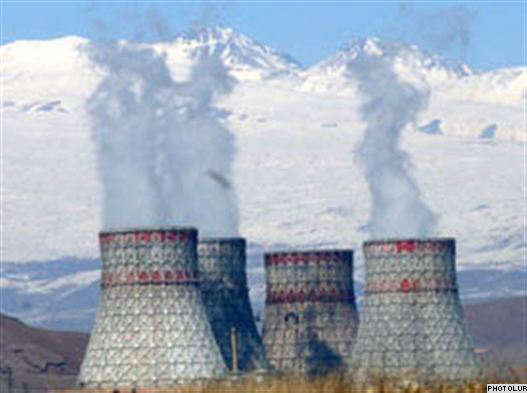Azerbaijan, Baku, April 9 / Trend A. Badalova /
Nuclear fuel will not be able to replace natural gas, demand and prices of which will increase in the nearest future, Western analysts said.
"It is very unlikely that nuclear power's contribution to energy production will rise," Italian Bruno Leoni Institute Department on Energy Carlo Stagnaro told Trend via-mail. I think nuclear future is not very bright in Europe."
The catastrophe, occurred in Japanese nuclear power plant, Fukushima-1, due to the devastating earthquake in the country and the subsequent tsunami, caused widespread international debate about the future of nuclear power. Several countries, particularly in Europe, began to review the projects on construction of new nuclear power plants.
In March the EU Council called on the European Commission to develop a system for stress tests. They are expected to be implemented by independent national organizations. The IAEA must finalize the methodology of conducting stress tests on all nuclear power plants in the world soon. After the European Commission examines and adopts the document, it will be allowed to conduct the stress tests in European countries.
At present, roughly 15-20 percent of the world's electricity are produced at nuclear power plants.
The U.S, France, Japan, Russia, Korea and Germany are the world leaders in nuclear power production.
The share of nuclear energy will most likely be stable or even decline, he said.
Virtually nuclear power might be offset by coal, but that would be inconsistent with Europe's objective of cutting emissions.
So I expect natural gas demand and prices to rise, he added.
In the short run that would not create big problems because natural gas demand in Europe is relatively low because of the economic crisis. In the medium run, however, that will require major investments both in new generating capacity and in new infrastructures such as pipelines and LNG terminal, he said.
In its turn, it means that a very critical issue is how things will go in North Africa, and how long political instability will last and how much that will affect Europe's imports, he said.
At this stage, the countries that have considerable reliance on nuclear power already are France and the United States. They will continue to rely on nuclear power, European specialist on energy security John Roberts said.
It means that it is much harder for completely new project in new countries to get off the ground. This is both for reasons of safety and concern, Roberts told Trend over phone.
Today, the world's gas reserves are large. It means that the production of this fuel will increase significantly in the future.
"We have witnessed the beginning of this process," Roberts said.
The example of this is increasing the U.S gas reserves during the year twice. It revived this country as the world's largest gas producer.
One of the key issues having special attention for the next 5-10 years, are whether the fossil fuel production costs will decrease and alternative energy sources will increase, he said
According to the forecasts of the European Union of Natural Gas - Eurogas, the demand for gas in the 27 EU countries will increase up to 637 billion cubic meters by 2030.
According to the European Commission, the dependence of EU countries on gas imports will increase up to 73-79 percent of consumption by 2020, up to 81-89 percent by 2030. Increasing in imports will be the result of exhausting the domestic resources.
According to Eurogas, the internal gas production in 27 EU countries decreased by 9 percent up to 182 billion cubic meters in 2009. The main external sources of supply are Russia, Norway and Algeria.
E. Ostapenko contributed to the article.






